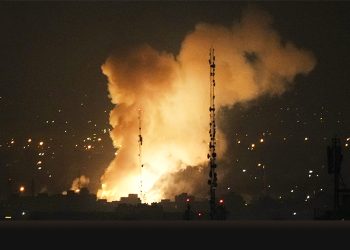ABUJA: Nigerian airlines are to suspend all flights from Monday over rising jet fuel prices, an umbrella organisation of operators said.
Domestic flights have been disrupted since March as some started to cancel internal schedules while others delayed operations, citing scarcity of jet fuel. Global jet fuel prices have soared after Russia’s invasion of Ukraine triggered a surge in the crude oil market, hitting airlines and passengers with steep cost increases.
The Airline Operators of Nigeria said the price of jet fuel had jumped from 190 to 700 Nigerian naira per litre (from $0.45 to almost $1.70), adding that the cost of a one-hour flight has more than doubled to 120,000 naira, which is unsustainable. “No airline in the world can absorb this kind of sudden shock from such an astronomical rise over a short period,” it said.
Airline passengers in Nigeria pay for fares in naira, which has weakened sharply due to devaluations. Fuel suppliersare paid in dollars, a scarce currency in Africa’s top economy. The association said the continued rise in the cost of jet fuel has created operational pressures that put into question their financial viability.
“To this end therefore, the Airline Operators of Nigeria (AON) … inform the general public that member airlines will discontinue operations nationwide with effect from Monday May 9, 2022 until further notice,” it said.
The aviation ministry responded by urging airlines to “consider the multiplier effect of shutting down operations, on Nigerians and global travellers”.
The Nigerian consumer protection agency also implored “domestic airlines to consider the effect of the proposed shutdown on passengers and the magnitude of difficulties and hardship associated with such an action”.
It added it was “concerned with rising consumer feedback that airlines have continued to sell tickets beyond the date announced for the proposed service shutdown.”
Nigeria produces 1.4 million barrels of crude a day, but it refines little. It relies almost completely on fuel imports, making the local market vulnerable to disruptions. The rising price of fuel has caused prolonged power blackouts in recent weeks.


































